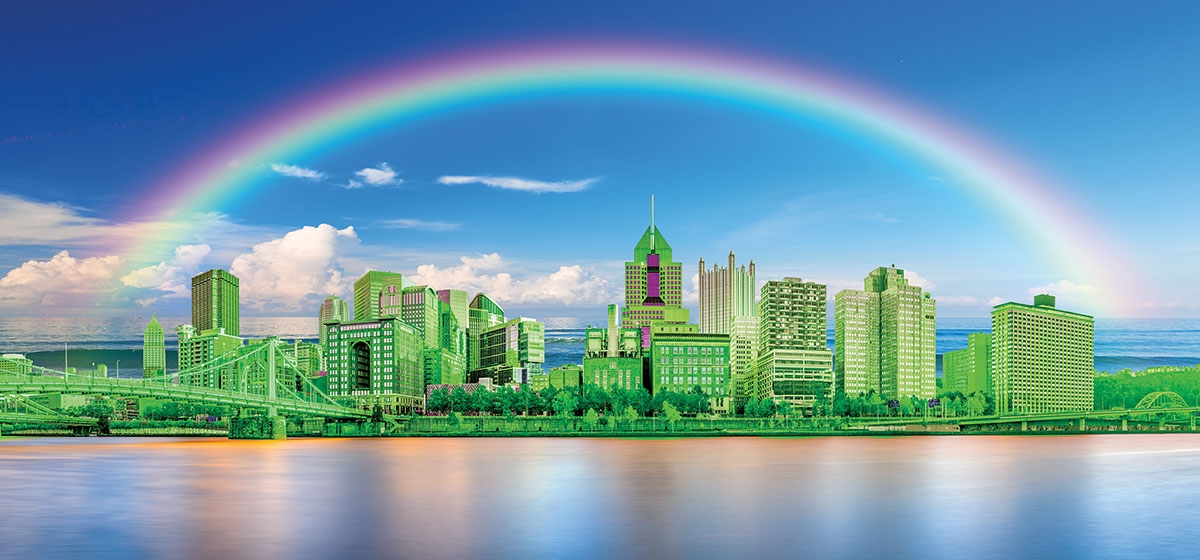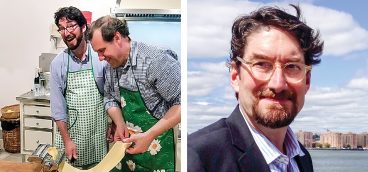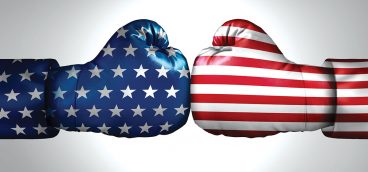Fairy Tale or Future: The Choice Is Ours

The Amazon HQ2 spectacle was a grand 21st Century fairy tale. It had everything: the world’s richest company promising happily-ever-after status to the city that would win its second headquarters, $5 billion in investment and 50,000 jobs.
For 17 months, people murmured throughout the land. Some whispered that Amazon’s move was a brilliant marketing stratagem; others decried it as a shameful attempt to extort America. But cities everywhere vied to be the fairest of them all, primping, preening and preparing proposals with incentives worth billions. And everyone wondered which lucky city Amazon would kiss.
Pittsburgh tried its hardest. Our team put our best foot forward, winning a spot among 20 finalists. And for months, we all thought—“Why not Pittsburgh indeed?” After all, this city has abundant charms. Alas, when the clock struck midnight, we turned into a pumpkin just like nearly all the others. And Amazon ended up turning into a frog—not delivering on its promise to any one city.
But that’s not where the story ends. It’s just a plot twist. It’s like the Wizard of Oz. At the beginning, flames billow and lights flash as the mighty wizard says: “I…am…OZ, the great and powerful. Who are YOU?!!” Dorothy, trembling, steps forward: “I am Dorothy…the small and meek.”
Dorothy and her heroic trio of friends perform their daunting task, only to learn that the Wizard is nothing but a humbug, using tricks and gimmickry to bamboozle the land. At the end, Dorothy and her friends realize that they’ve had the power all along to make their dreams come true on their own.
Well, the curtain’s been torn away and Amazon’s not bringing us 50,000 jobs. What do we do now?
***
The great power in any society lies in its people, whether they realize it or not. When they’re united—for good or ill—a group of people can change the face of reality. Most often, of course, we’re busy living our lives, earning money, supporting families and pursuing our favorite distractions.
And when someone suggests a new project, there are always those who say it shouldn’t be attempted or can’t be done. With the Amazon bid, many feared the growth it would bring. Think what all those new people would do to this area. Pittsburgh wouldn’t be Pittsburgh any more. There’d be traffic congestion, gentrification, and crime. Housing prices would go up.
If we were another city, those concerns might have validity. But we’re not. We’re the only major metro area in the country that hasn’t grown in the last 30 years. We’re the oldest, whitest big city in the country. More people die here than are born. If some day in the distant future we’re ever in danger of having too much growth, we can address that problem then.
Right now, we’re in danger of falling behind in something much more significant: innovation. With all of our universities and foundations, how could that be? It’s simple. Nature’s way is that younger generations bring new ways of doing things. They’re not always better, but often they are. Having an older population has some benefits—but innovating and being open to new things aren’t among them. Using a broad brush, you could say we’re complacent. We live here, like as it is, and don’t feel the need to change.
It didn’t used to be that way here. Google “Pittsburgh timeline Wikipedia,” and compare the nine years leading up to 1919 with those leading to 2019. The former saw the construction of Soldiers and Sailors, Union Trust Building, Syria Mosque, City County Building, and William Penn Hotel. The Pittsburgh Courier, America’s foremost black newspaper, was started, as was the Pittsburgh NAACP. The Homestead Grays, Pittsburgh Yellow Jackets (Penguins’ forerunners) and the Pitt football Panthers launched. Simultaneously, Pittsburgh produced more than half the nation’s steel, supplying America’s victory in World War I. And we overcame the biggest flu epidemic in history. And that decade wasn’t even unusual.
For the last nine years, however, the same web page shows very little of real note, except the Tree of Life shooting. What will history say of us and our time here in Pittsburgh, if anything? What will we accomplish?
That’s not fair, some will say; it’s not like the old days. We don’t have the money to think big. Things have changed.
It’s true that things have changed. They always do. However, with our standard of living—the highest in history—and our wealth, both personal and philanthropic, after what’ll soon be the longest economic expansion in history, there’s really nothing we couldn’t do—if we were bold enough to envision it and commit to it.
If we could come up with $9.7 billion in incentives for Amazon, how much more might we collectively be willing to invest in ourselves and our future?
Who among us wouldn’t like to be part of something greater than ourselves? Our generation never overcame a Great Depression or won World War II. Why not have our legacy be making Pittsburgh the greatest city in the world?
It’s possible. We have an opportunity that most American don’t. We live in a city that’s not too big and not too small—as Goldilocks said, it’s just right. Our problems are solvable—whether it’s having every kid learn to read and graduate—or building the world’s most effective high-tech transportation system—or cleaning our air and water—or creating the most beautiful city artscapes anywhere. We’re a place where transformative ideas can become reality.
We have the means. Do we have the will and the cooperative spirit? In the past, that answer was always yes.
In this spirit, we are today launching a new competition. You’ll see some initial seeds that are being sown as our Spring 2019 issue releases online beginning Thursday, where we’ve asked a group of regional leaders to give an idea, in 50 words or less, that, if enacted, would make Pittsburgh a better place.
We thank these leaders for priming the pump, and now we’re inviting you take part. Send us your idea for a better Pittsburgh. It could be anything. Just keep it under 500 words (it could just be one sentence) and send it—along with, if you wish, any documents/designs—to pghtomorrow@pittsburghquarterly.com. Or endorse or build on an idea you read in the Spring issue. The winners will receive an audience this summer with Mayor Bill Peduto, Allegheny County Executive Rich Fitzgerald and a group of potential funders.
We live perched between two vast and misty empires—the empire of the past and the empire of the future. Yet, we belong to neither. We live in a third—the clear and vivid realm of the present, and what we do with it is up to us.





